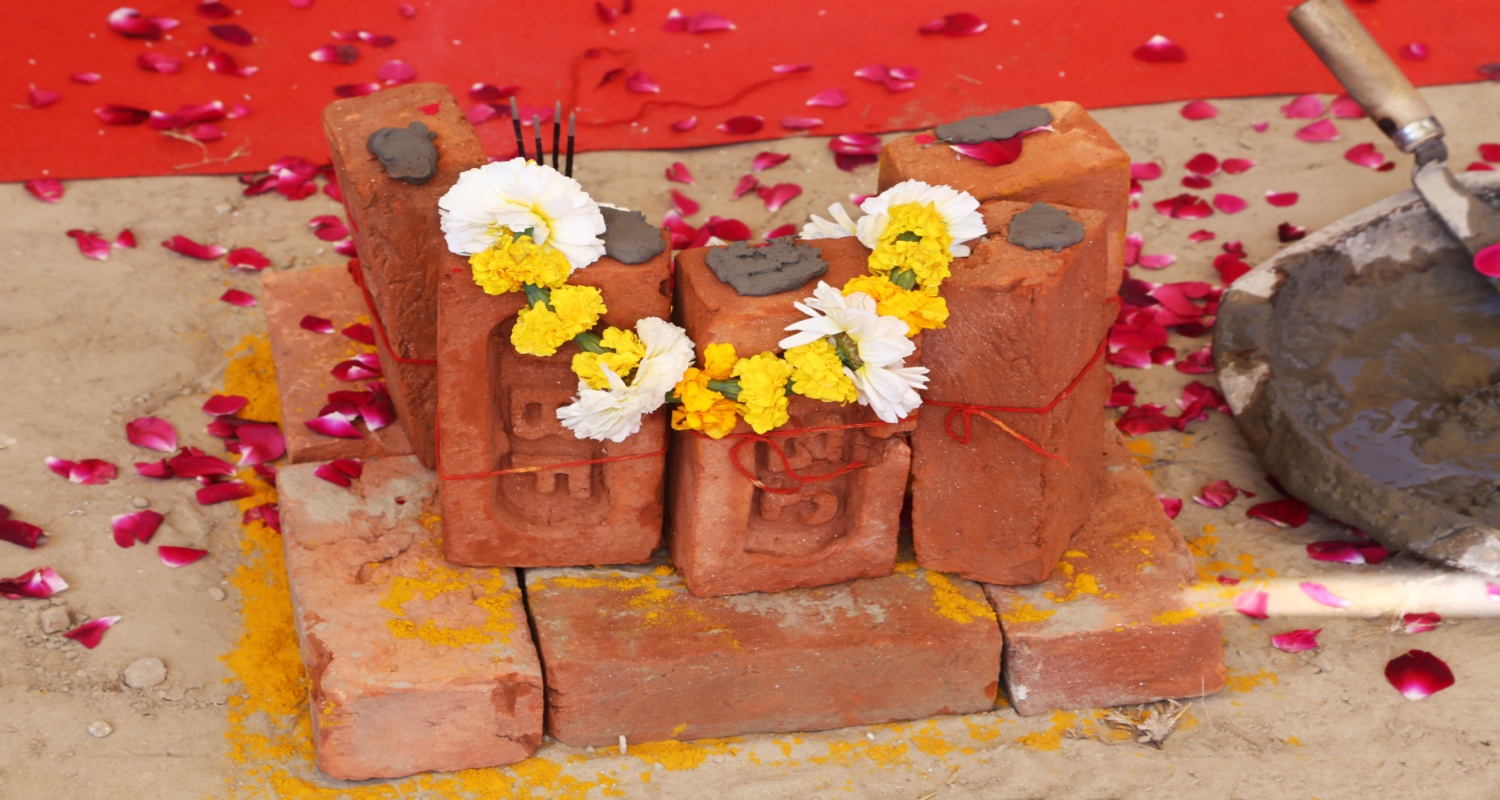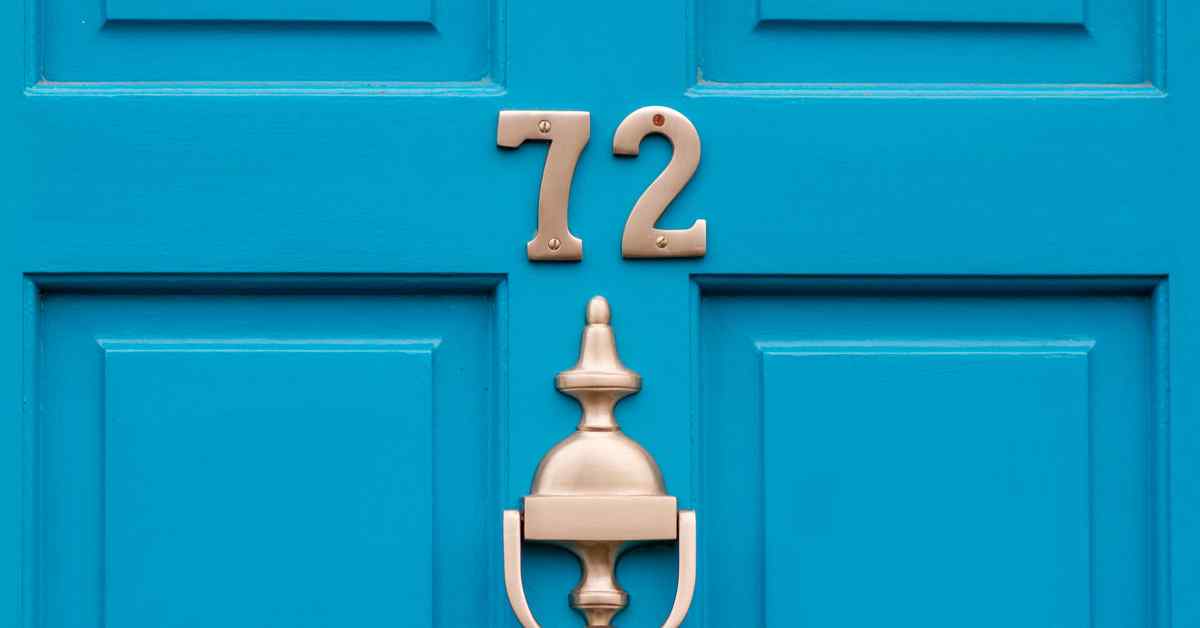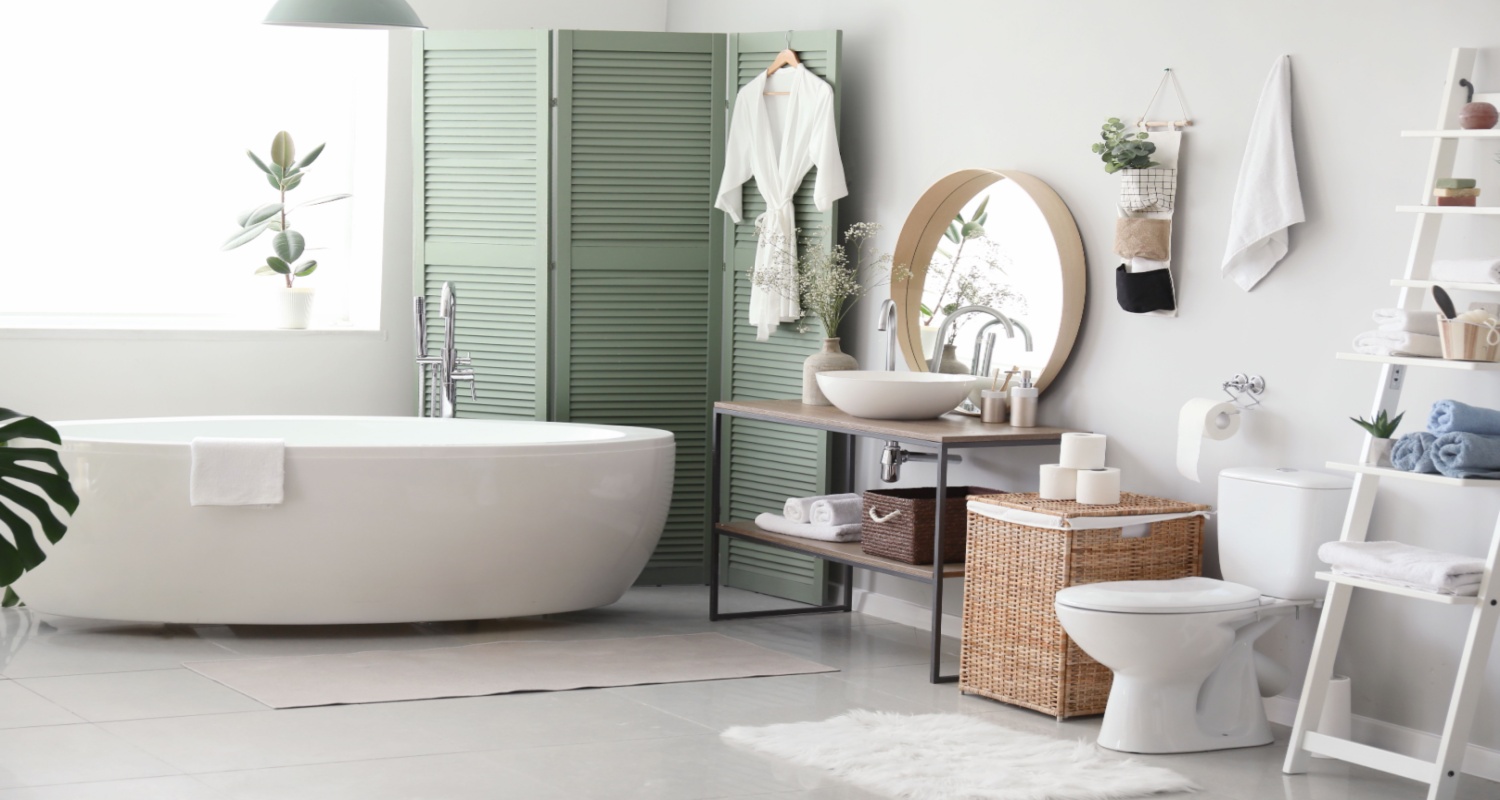Table of Contents
Quality Service Guarantee Or Painting Free

Get a rental agreement with doorstep delivery

Find the BEST deals and get unbelievable DISCOUNTS directly from builders!

5-Star rated painters, premium paints and services at the BEST PRICES!
Loved what you read? Share it with others!


Submit the Form to Unlock the Best Deals Today
Check Your Eligibility Instantly

Experience The NoBrokerHood Difference!
Set up a demo for the entire community

Tenant Super Relax Plan
Enjoy Hassle-Free Renting
 Full RM + FRM support
Full RM + FRM support Instant alerts & premium filters
Instant alerts & premium filters Rent negotiation & relocation help
Rent negotiation & relocation helpBest Ideal Wardrobe Direction as Per Vastu for Different Spaces of Home Give Balanced Energy in 2025
Table of Contents
Ancient Indian architectural science, Vastu Shastra, stresses the harmony, health, and wealth that depend on the energy balance within living environments. Maintaining the flow of good energy depends much on every component of interior design, including wardrobe direction, as per Vastu. Among the key pieces of furniture in a house, the wardrobe needs careful placement to guarantee it accentuates the room's energy flow. Based on Vastu, we will discuss the best orientations for arranging a wardrobe in this article, how to choose the perfect wardrobe Vastu direction according to room layout, and wardrobe arrangement rules for many rooms.
What is Vastu Shastra?
Vastu Shastra is an ancient Indian architectural and design system that originated 5,000 years ago. "Vastu" means dwelling or building, and "Shastra" refers to a scientific or systematic body of knowledge. Vastu Shastra can be loosely translated as the "science of architecture." It is deeply rooted in the Vedic traditions and is considered one of the world's oldest forms of architectural and design philosophies.
How to choose the ideal spot based on the room layout and direction?
As per Vastu, the best direction of the wardrobe will rely not only on the orientation but also on the general room layout. These few important factors should help you decide where to put your wardrobe:
Quality Service Guarantee Or Painting Free

Get a rental agreement with doorstep delivery

Find the BEST deals and get unbelievable DISCOUNTS directly from builders!

5-Star rated painters, premium paints and services at the BEST PRICES!
1. Ensure Proper Walking Space:
Furniture crowding a room could cause confinement, impeding the free movement of energy. As per Vastu, the wardrobe should ideally be arranged so as not to block the paths or crowd other necessary furniture items.
2. Mirrored Wardrobes:
If your closet includes a mirror, consider carefully the direction of the wardrobe as per Vastu. Mirrors should not face the bed, claims Vastu, as they reflect energy into the sleeping space and might induce unrest or disrupted sleep. For a modern and sleek look, consider incorporating glass wardrobe designs into your room, which adds elegance and creates a sense of openness and light in the space.
3. Positioning of the Bed:
The wardrobe shouldn't be next to the bed as it could make one feel depressed or uncomfortable. Make sure the sleeping area and the wardrobe are separated to harmonise the room's whole energy flow.
4. Location in line with Door and Windows:
Avoid putting wardrobes too near windows or straight in front of them. They should not block natural light or ventilation. Likewise, they should not obstruct the room's entry, as this would impede the good energy's entrance flow into the area.
Recommended Reading

Wall Clock Vastu Essentials for a Serene Living Space
January 31, 2025
175234+ views

South West Facing House Vastu: Entrance, Room Placements, Benefits and Remedies in 2025
May 27, 2025
150712+ views

How to Choose the Perfect Lucky House Names for Your Home in 2025
January 2, 2025
145380+ views

House Number Numerology: How to Calculate and What Each Number Means in 2025
January 2, 2025
126857+ views

Vastu for Toilets and Bathrooms in 2025: Directions, Placement, Remedies, and Tips
May 1, 2025
99495+ views
Wardrobe Direction in Different Rooms
Although all rooms benefit from the fundamental ideas of cupboard direction as per Vastu, particular advice may differ based on the purpose of the space. These ideas guide the position of the almirah, as per Vastu, in many parts of the house:
1. Primary Bedroom

Having a wardrobe in the Southwest will assist in fostering financial stability and stability in personal relationships. As per wardrobe direction as per Vastu, the wardrobe should be placed in the bedroom along the west or south walls. Avoid putting it too near the bed to preserve room openness.
2. Children's Bedroom

Placing the wardrobe along the west wall helps to balance the energy in the space without overpowering it. For the youngster, this wardrobe position in the bedroom, as per Vastu, will assist in fostering discipline, structure, and concentration.
3. Guest Room

This room is designed for temporary use. Hence, as per Vastu, the wardrobe facing should also maximize visitor comfort while maintaining harmony and balance in the whole environment.
4. Living Room

If the wardrobe is in a communal area, such as the living room, it should be positioned along the southwest wall to avoid taking centre stage. As per Vastu, this is the best direction for the almirah.
Key Principles of Vastu Shastra
- Five Elements (Panchabhootas): Vastu is based on the five elements—Earth, Water, Fire, Air, and Space. Their proper balance and alignment are believed to contribute to a positive and harmonious living environment.
- Directions (Dikshas): Vastu assigns significance to a building's orientation and various components in relation to the cardinal directions (North, South, East, West). Each direction is associated with specific qualities and influences.
- Energy Flow (Prana): Vastu emphasises the flow of positive energy, known as Prana, within a space. It suggests ways to ensure smooth energy circulation to promote well-being and prosperity.
- Construction Materials and Techniques: Choosing construction materials and techniques is crucial in Vastu Shastra. Certain materials are believed to have specific energies, and the construction process is considered sacred.
- Astrological and Geographical Factors: Vastu considers a location's astrological and geographical factors. The position of celestial bodies and the geographical features of the land are believed to influence a space's energy.
Wardrobe Placement According to Vastu
Vastu guidelines for wardrobe placement ensure the practicality of storage and a harmonious and positive environment in different rooms. Let's explore the ideal wardrobe position per Vastu in various rooms, common mistakes to avoid, and the impact of incorrect wardrobe placement on energy flow.
1. Master Bedroom Direction of Wardrobe as per Vastu

The master bedroom is considered the heart of the home, symbolising stability and the bond between partners. In line with Vastu principles, placing the wardrobe in the southwest or west direction of the master bedroom is highly recommended according to the position of the wardrobe in the bedroom. As per Vastu, this cupboard direction is believed to harness the earth element, providing a grounding and secure energy. It is thought to contribute to a sense of stability, enhancing the relationship between spouses and fostering a restful atmosphere conducive to sleep and relaxation as per Vastu for wardrobe in the bedroom.
2. Children's Bedroom Wardrobe Position as per Vastu

Children's bedrooms, vibrant spaces of growth and learning, benefit from wardrobe placement in the north or east direction. According to Vastu, the best directions for cupboards are associated with positive energies that stimulate intellectual development and creativity in children. By aligning the wardrobe with these directions, Vastu aims to create an environment that supports the child's educational journey, promoting a positive mindset and overall well-being.
3. Guest Room Cupboard Direction as per Vastu

The guest room is a space where hospitality and warmth are key. Vastu Shastra recommends placing the wardrobe in the northwest or west direction. This direction of the almirah, as per Vastu, is believed to attract positive energies that enhance social interactions and create a welcoming atmosphere for guests. It fosters a sense of ease and comfort, making the guest's stay more enjoyable.
Avoiding Certain Placements and Directions
Avoiding certain placements and directions for wardrobes is essential to maintaining positive energy flow within a living space. The ancient principles of Vastu offer guidance on potential pitfalls and caution against common mistakes that might disrupt the harmonious balance. Let's explore why one should avoid specific placements and directions according to the position of the almirah as per Vastu.
Mistakes to Avoid in Wardrobe Placement According to Vastu
Wardrobe placement is a critical aspect of Vastu Shastra, and certain common mistakes must be avoided to maintain a positive energy flow within a living space. According to Vastu, let's delve into the common mistakes associated with wardrobe placement.
- Wardrobe Against the Bathroom Wall: Placing the wardrobe against the wall shared with the bathroom is a prevalent mistake. In Vastu, this position is believed to invite negative energies associated with the bathroom, leading to potential financial instability and health issues. The bathroom is considered a source of draining energy and aligning the wardrobe with it may absorb undesirable vibrations.
- Obstructing Pathways: A common oversight is placing the wardrobe in a way that obstructs movement within the room. Vastu encourages open spaces and unrestricted pathways to facilitate the circulation of positive energy. Blocking these pathways may lead to stagnant energy, affecting the overall vibrancy of the living space.
- Cluttered and Overloaded Wardrobes: Overloading the wardrobe with excessive items or allowing it to become cluttered goes against Vastu principles. A cluttered wardrobe is believed to represent a cluttered mind, hindering positive energy flow. Regular organization and decluttering are recommended to maintain clean and harmonious energy within the wardrobe.
- Mismatched Colors and Materials: Inconsistent use of colours and materials in the wardrobe can disrupt the balance of energies. Vastu encourages using harmonious colours and materials that resonate with specific directions. Mismatched elements may create visual disharmony and impact the overall energetic equilibrium in the room.
- Neglecting Ventilation: Another mistake, according to the direction of the cupboard, is overlooking the importance of proper ventilation around the wardrobe area, as per Vastu. Adequate airflow is crucial for maintaining positive energy. Placing the wardrobe in a poorly ventilated corner may result in stagnation of energy and, subsequently, impact the overall well-being of the occupants.
- Ignoring Personal Vastu Chart: Neglecting individual Vastu charts or personalised considerations is a common oversight. Each person has a unique energy composition, and aligning the wardrobe placement with individual Vastu charts can enhance the positive influences specific to each occupant.
Impact of Incorrect Wardrobe Placement on Energy Flow According to Vastu
The placement of wardrobes in a home holds significant importance in Vastu Shastra, as it directly influences energy flow within a living space. Incorrect wardrobe placement can disrupt the natural balance of energies, affecting the well-being and harmony of the occupants. Let's explore the potential impacts of such misalignment on the energy flow according to wardrobe Vastu directions.
- Disturbances in Sleep and Well-being: Placing the wardrobe in a way that interferes with the natural flow of energy within the bedroom can lead to disturbances in sleep and overall well-being. The bedroom is a space dedicated to rest and rejuvenation, and any disruption in the positive energy flow may impact the quality of sleep and, consequently, the health of the occupants.
- Sense of Imbalance: Positioning the wardrobe in the centre of the room or in a way that disrupts the overall balance of the living space is discouraged in Vastu. The centre of a room is considered a vital space that should ideally remain open and unobstructed. Incorrect placement may create blockages in the energy flow, resulting in a sense of imbalance and disharmony.
- Stagnation of Positive Energy: Incorrectly placed wardrobes may lead to stagnant energy within the room. Vastu emphasises the free flow of positive energy to ensure a vibrant and lively living environment. When wardrobes obstruct pathways or create energy blockages, the result can be a lack of vitality and a feeling of stagnation in the space.
- Impact on Mental Clarity: Cluttered and disorganised wardrobes and those placed against bathroom walls may negatively impact mental clarity. Vastu encourages an organised, clean living environment to promote a clear, focused mind. Incorrect wardrobe placement, especially in the bathroom, is believed to introduce negative energies that can cloud mental clarity.
- Financial Instability: In Vastu, placing the wardrobe against the wall shared with the bathroom is considered inauspicious. This alignment is believed to attract negative energies associated with financial instability. According to Vastu principles, the bathroom is a source of draining energy and aligning the wardrobe with it may lead to financial challenges.
Try Vastu Charms for Wardrobes
If you haven’t selected one of the best directions for the almirah as per Vastu earlier, Vastu has separate guidelines and principles to eradicate Dosh or misalignment. Incorporating specific charms or objects into your wardrobe space enhances positive energy, promotes harmony, and creates a sense of well-being. Here are some Vastu charms and tips on how to place them in your wardrobe:
| Vastu Charm | Material/Element | Placement in Wardrobe | Believed Benefits |
| Crystals and Gemstones | Amethyst, Quartz, Rose Quartz | Place in corners or on shelves inside the wardrobe. | Enhance positive energy, bring calmness, and positivity. |
| Metal Elements | Copper or Brass Bells, Wind Chimes | Hang near the wardrobe entrance or inside. | Dispel negative energy, create harmonious vibrations. |
| Aromatic Herbs/Sachets | Lavender, Chamomile, Eucalyptus | Place sachets inside the wardrobe or on shelves. | Infuse a pleasant fragrance, promote relaxation. |
| Mirrors | Small Mirrors or Mirror Tiles | Attach to the inside of wardrobe doors. | Symbolically double abundance, reflect positive energy. |
| Lucky Bamboo Plant | Potted Lucky Bamboo Plant | Place on a shelf inside the wardrobe. | Symbolises good fortune and positive energy. |
| Salt Bowls | Rock Salt or Sea Salt Bowls | Place small bowls in wardrobe corners. | Absorb negative energy, maintain a positive environment. |
| Affirmation Cards | Cards with Positive Affirmations | Tuck inside drawers or pin on wardrobe doors. | Influence positive mindset, create an uplifting atmosphere. |
| Citrine Crystals | Citrine Crystals | Place near financial documents or valuable items. | Attract wealth and prosperity, promote abundance. |
Remember to place these charms with intention and keep the space clutter-free for optimal energy flow according to the principles of wardrobe direction as per Vastu. Personal preferences and beliefs play a role in selecting and arranging these charms, and it's always beneficial to consult with a Vastu expert for personalised guidance. Vastu experts at NoBroker can help you with all your queries and assist you with anything you need when it comes to creating an energy-optimised space. Start your journey with NoBroker Vastu experts for a space filled with harmony and positive energy.
Frequently Asked Questions
Ans: According to Vastu, the southwest or west is the ideal direction for placing a wardrobe in the bedroom. This placement promotes stability, security, and a sense of groundedness.
Ans: Vastu advises against placing a wardrobe against the wall shared with the bathroom. This position invites negative energies associated with financial instability and potential health issues.
Ans: You can enhance positive energy in your wardrobe by incorporating Vastu charms such as crystals, mirrors, and aromatic herbs. Additionally, organising your wardrobe, selecting harmonious colours, and decluttering regularly contribute to a positive energy flow.
Ans: Vastu recommends using light and soothing colours for wardrobe interiors. Pastels, light blues, and soft hues are considered auspicious as they create a serene and calming atmosphere.
Ans: Yes, placing a mirror inside the wardrobe is considered auspicious in Vastu. Mirrors are believed to symbolically double abundance and reflect positive energy. Ensure the mirrors are clean and unbroken for maximum effectiveness.
Ans: Yes, specific Vastu charms for wardrobes include crystals (such as amethyst and clear quartz), metal elements (like copper bells or wind chimes), aromatic herbs/sachets (lavender or chamomile), mirrors, lucky bamboo plants, salt bowls, affirmation cards, and citrine crystals.
Loved what you read? Share it with others!
Most Viewed Articles

7 Running Horses Painting Vastu for Your Home and Office 2025
January 9, 2025
231644+ views

Wall Clock Vastu Essentials for a Serene Living Space
January 31, 2025
175234+ views

South West Facing House Vastu: Entrance, Room Placements, Benefits and Remedies in 2025
May 27, 2025
150712+ views

How to Choose the Perfect Lucky House Names for Your Home in 2025
January 2, 2025
145380+ views

House Number Numerology: How to Calculate and What Each Number Means in 2025
January 2, 2025
126857+ views
Recent blogs in
20×30 North Facing House Plan: Vastu-Compliant 1 & 2 BHK Layout Designs for All Directions
July 6, 2025 by Priyanka Saha
1200 Sq Ft House Plans with Vastu: 2 & 3 BHK Layouts for All Facing Plots in 2025
July 6, 2025 by Priyanka Saha
1 BHK House Plan with Vastu: Ideal Layout, Room Direction & Tips for Peace in 2025
June 26, 2025 by Suju





Join the conversation!